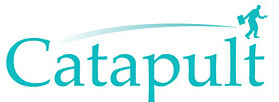Article 3 of 7-part thought leadership series: Protecting and Sustaining Your Organisation Through Ethical Decision-Making
Investigating organisational scandals often utilizes methods like culture surveys and interviews, but do these tools capture the full picture? In this third article of our 7-part series, we critique these conventional methods and discuss their limitations in revealing the real causes behind organisational scandals.
The Shortcomings of Culture Surveys
Culture surveys, despite being a popular tool for gauging organisational climate, may fall short in uncovering the genesis of scandals. They often provide surface-level data, with predefined questions that can miss the nuances of the organisation’s ethical health. Furthermore, the quantitative nature of surveys can obscure the qualitative aspects that drive behaviour.
Surveys can suffer from response bias, where employees provide answers, they believe are expected rather than their true perceptions. The static nature of surveys, providing a snapshot in time, cannot account for the dynamic and evolving ethical challenges that organisations face. Such limitations can result in a skewed understanding of the organisation’s culture and values.
Interviews: A Subjective Lens on Organisational Ethics
Interviews can offer richer, more detailed narratives than surveys, but they come with their own set of limitations. The subjectivity inherent in interviews means that the insights gained are influenced by the interviewees’ personal experiences and biases. This can lead to an incomplete or one-sided view of the ethical landscape.
The scope of interviews is often limited to a small number of participants, which might not represent the diversity of the organisation. Power dynamics can significantly influence the responses, with employees potentially withholding critical information due to fear of repercussions. As a result, interviews may fail to unearth the implicit norms and values that underpin the organisation’s culture.
Ethical Decision-Making: A Complex Puzzle
Ethical decision-making within organisations is intricate, influenced by individual values, corporate culture, external pressures, and specific situations. Culture surveys and interviews might not adequately capture these complexities, potentially overlooking how systemic pressures, such as aggressive targets, can lead to unethical behaviour.
Moreover, these methods can fail to identify the informal ‘ways things are done’ within an organisation, which may differ significantly from the formal structures and policies. This disconnect is often where ethical lapses begin to form, going unnoticed until they escalate into full-blown scandals.
Capturing the Nuances
To truly understand the causes of organisational scandals, we need to delve deeper than surveys and interviews. It requires a comprehensive approach that considers the historical context of decisions, the interplay between formal and informal processes, and the personal motivations that drive individual behaviour.
Conclusion
A multi-faceted approach that combines data analysis, direct observation, whistleblower insights, and a review of internal communication can provide a more accurate picture of an organisation’s ethical posture. By understanding the limitations of conventional methods, we can better identify the root causes of scandals and take proactive steps to address them.
The next articles in this series will continue to explore how organisations can strengthen their ethical decision-making processes to prevent scandals and build a culture of integrity and accountability.
Join us as we continue to explore the foundations of ethical resilience in organisations and the tools necessary for sustaining a culture of integrity.
🚀 Embark on this journey of growth and ethical business practices. Your organisation’s future is at stake.
👉 Take the quiz now: [https://goodculture.scoreapp.com]
#EthicalLeadership #BusinessIntegrity #OrganisationalHealth #GoodCulture #ethics



0 Comments